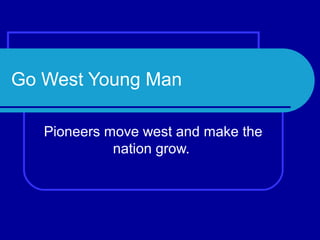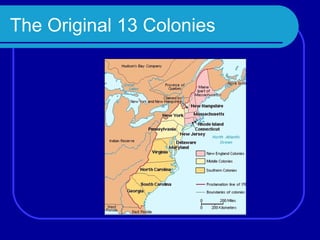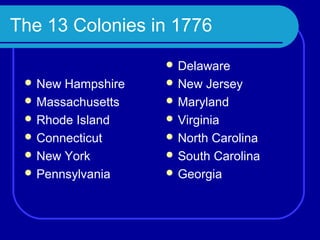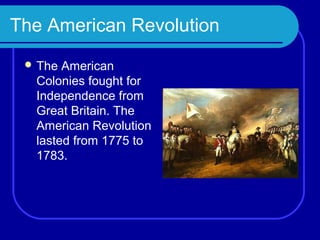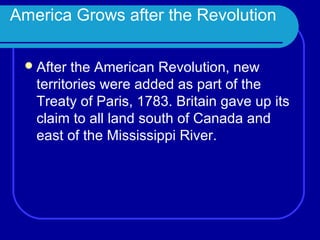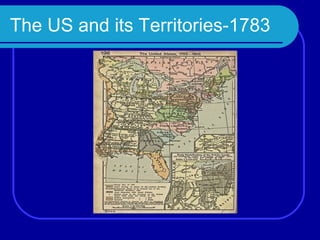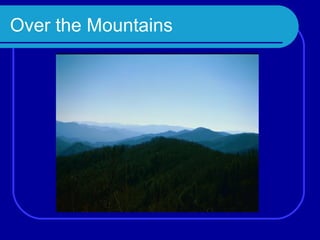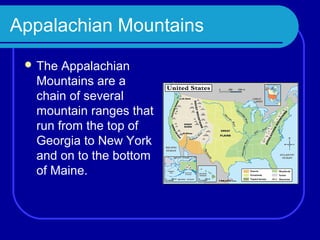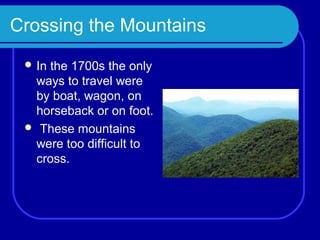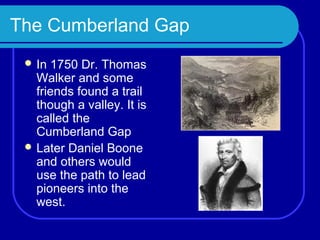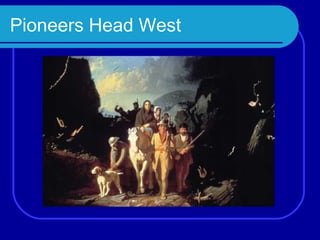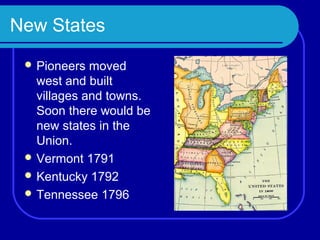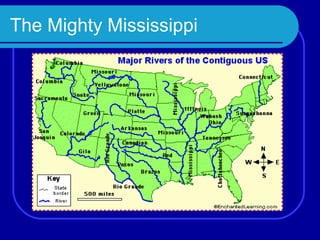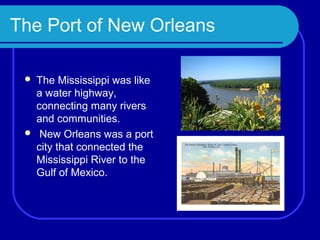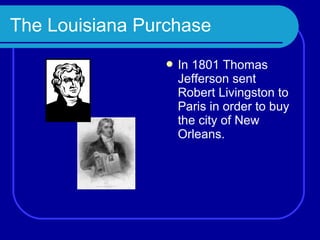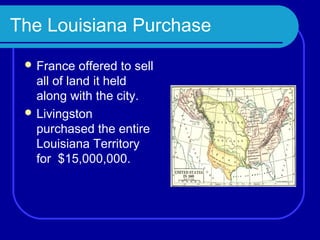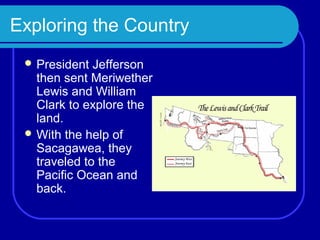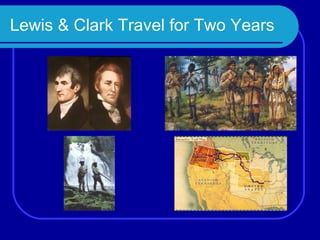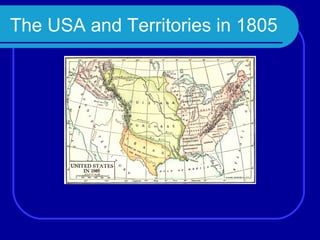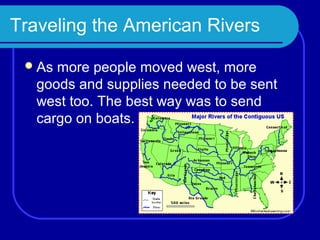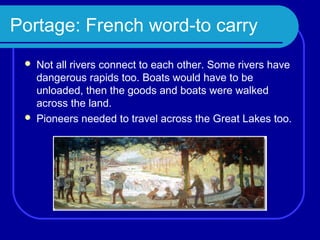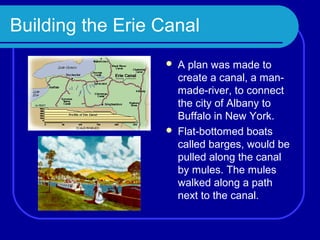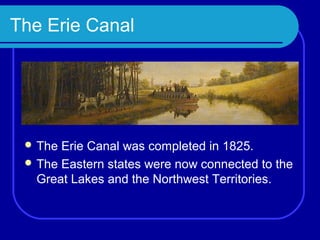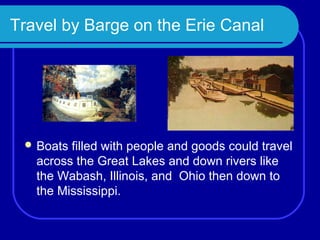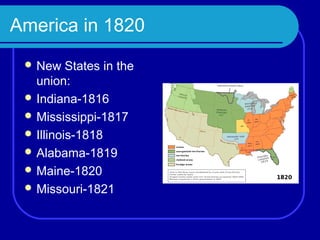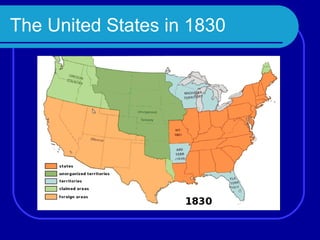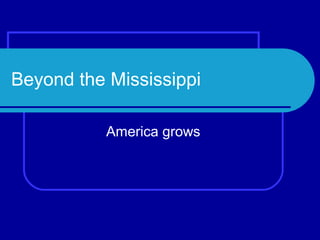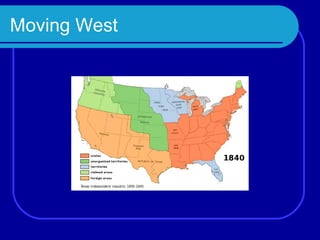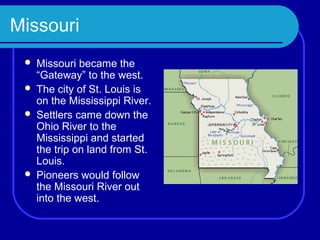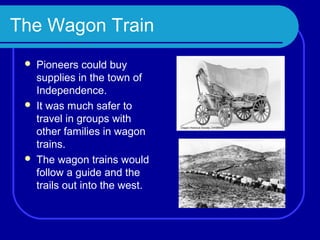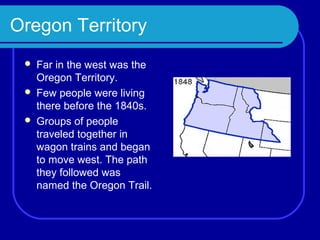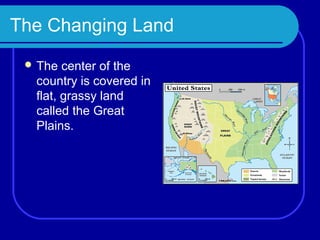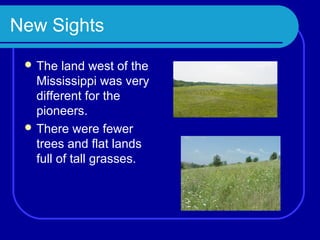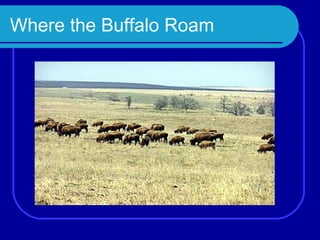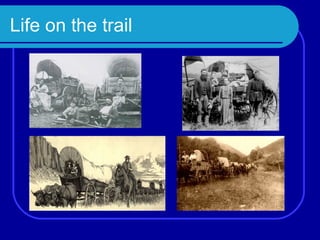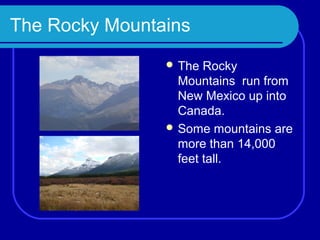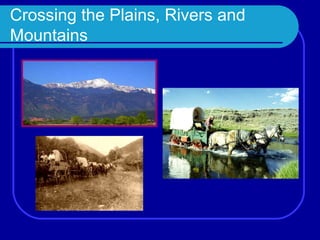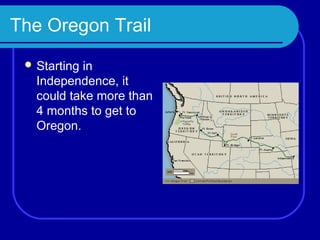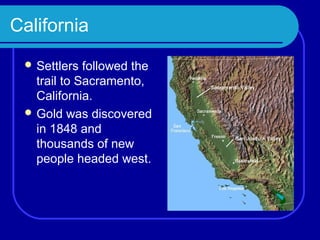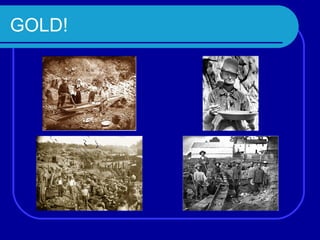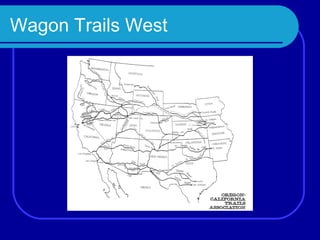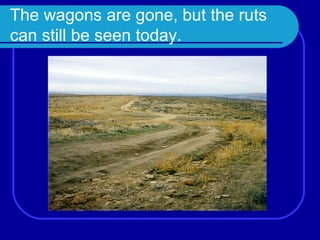Go west young man
- 1. Go West Young Man Pioneers move west and make the nation grow.
- 2. The Original 13 Colonies
- 3. The 13 Colonies in 1776 ïŽ Delaware ïŽ New Hampshire ïŽ New Jersey ïŽ Massachusetts ïŽ Maryland ïŽ Rhode Island ïŽ Virginia ïŽ Connecticut ïŽ North Carolina ïŽ New York ïŽ South Carolina ïŽ Pennsylvania ïŽ Georgia
- 4. The American Revolution ïŽ The American Colonies fought for Independence from Great Britain. The American Revolution lasted from 1775 to 1783.
- 5. America Grows after the Revolution ïŽ After the American Revolution, new territories were added as part of the Treaty of Paris, 1783. Britain gave up its claim to all land south of Canada and east of the Mississippi River.
- 6. The US and its Territories-1783
- 8. Appalachian Mountains ïŽ The Appalachian Mountains are a chain of several mountain ranges that run from the top of Georgia to New York and on to the bottom of Maine.
- 9. Crossing the Mountains ïŽ In the 1700s the only ways to travel were by boat, wagon, on horseback or on foot. ïŽ These mountains were too difficult to cross.
- 10. The Cumberland Gap ïŽ In 1750 Dr. Thomas Walker and some friends found a trail though a valley. It is called the Cumberland Gap ïŽ Later Daniel Boone and others would use the path to lead pioneers into the west.
- 12. New States ïŽ Pioneers moved west and built villages and towns. Soon there would be new states in the Union. ïŽ Vermont 1791 ïŽ Kentucky 1792 ïŽ Tennessee 1796
- 14. The Port of New Orleans ïŽ The Mississippi was like a water highway, connecting many rivers and communities. ïŽ New Orleans was a port city that connected the Mississippi River to the Gulf of Mexico.
- 15. The Louisiana Purchase ïŽ In 1801 Thomas Jefferson sent Robert Livingston to Paris in order to buy the city of New Orleans.
- 16. The Louisiana Purchase ïŽ France offered to sell all of land it held along with the city. ïŽ Livingston purchased the entire Louisiana Territory for $15,000,000.
- 17. Exploring the Country ïŽ President Jefferson then sent Meriwether Lewis and William Clark to explore the land. ïŽ With the help of Sacagawea, they traveled to the Pacific Ocean and back.
- 18. Lewis & Clark Travel for Two Years
- 19. The USA and Territories in 1805
- 20. Traveling the American Rivers ïŽ As more people moved west, more goods and supplies needed to be sent west too. The best way was to send cargo on boats.
- 21. Portage: French word-to carry ïŽ Not all rivers connect to each other. Some rivers have dangerous rapids too. Boats would have to be unloaded, then the goods and boats were walked across the land. ïŽ Pioneers needed to travel across the Great Lakes too.
- 22. Building the Erie Canal ïŽ A plan was made to create a canal, a man- made-river, to connect the city of Albany to Buffalo in New York. ïŽ Flat-bottomed boats called barges, would be pulled along the canal by mules. The mules walked along a path next to the canal.
- 23. The Erie Canal ïŽ The Erie Canal was completed in 1825. ïŽ The Eastern states were now connected to the Great Lakes and the Northwest Territories.
- 24. Travel by Barge on the Erie Canal ïŽ Boats filled with people and goods could travel across the Great Lakes and down rivers like the Wabash, Illinois, and Ohio then down to the Mississippi.
- 25. America in 1820 ïŽ New States in the union: ïŽ Indiana-1816 ïŽ Mississippi-1817 ïŽ Illinois-1818 ïŽ Alabama-1819 ïŽ Maine-1820 ïŽ Missouri-1821
- 26. The United States in 1830
- 27. Beyond the Mississippi America grows
- 28. Moving West
- 29. Missouri ïŽ Missouri became the âGatewayâ to the west. ïŽ The city of St. Louis is on the Mississippi River. ïŽ Settlers came down the Ohio River to the Mississippi and started the trip on land from St. Louis. ïŽ Pioneers would follow the Missouri River out into the west.
- 30. The Wagon Train ïŽ Pioneers could buy supplies in the town of Independence. ïŽ It was much safer to travel in groups with other families in wagon trains. ïŽ The wagon trains would follow a guide and the trails out into the west.
- 31. Oregon Territory ïŽ Far in the west was the Oregon Territory. ïŽ Few people were living there before the 1840s. ïŽ Groups of people traveled together in wagon trains and began to move west. The path they followed was named the Oregon Trail.
- 32. The Changing Land ïŽ The center of the country is covered in flat, grassy land called the Great Plains.
- 33. New Sights ïŽ The land west of the Mississippi was very different for the pioneers. ïŽ There were fewer trees and flat lands full of tall grasses.
- 34. Where the Buffalo Roam
- 35. Life on the trail
- 36. The Rocky Mountains ïŽ The Rocky Mountains run from New Mexico up into Canada. ïŽ Some mountains are more than 14,000 feet tall.
- 37. Crossing the Plains, Rivers and Mountains
- 38. The Oregon Trail ïŽ Startingin Independence, it could take more than 4 months to get to Oregon.
- 39. California ïŽ Settlers followed the trail to Sacramento, California. ïŽ Gold was discovered in 1848 and thousands of new people headed west.
- 40. GOLD!
- 42. The wagons are gone, but the ruts can still be seen today.
- 43. The End
